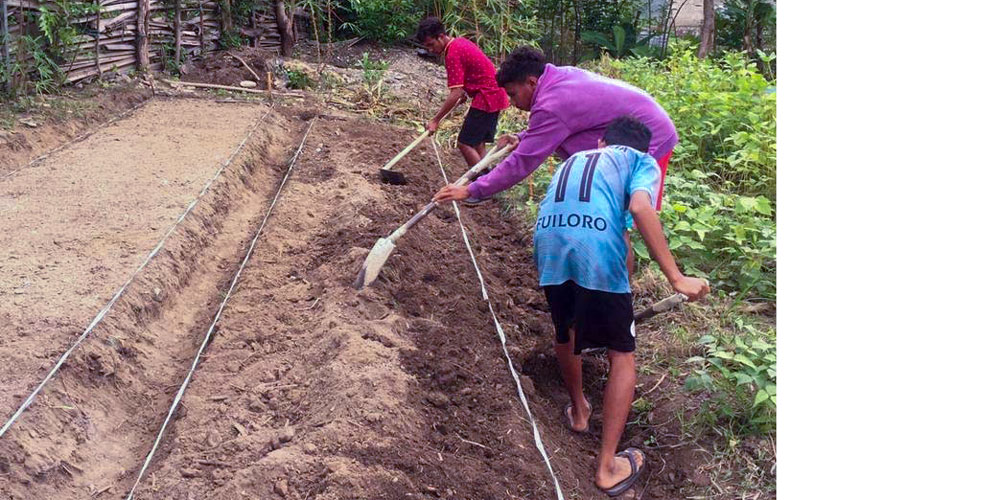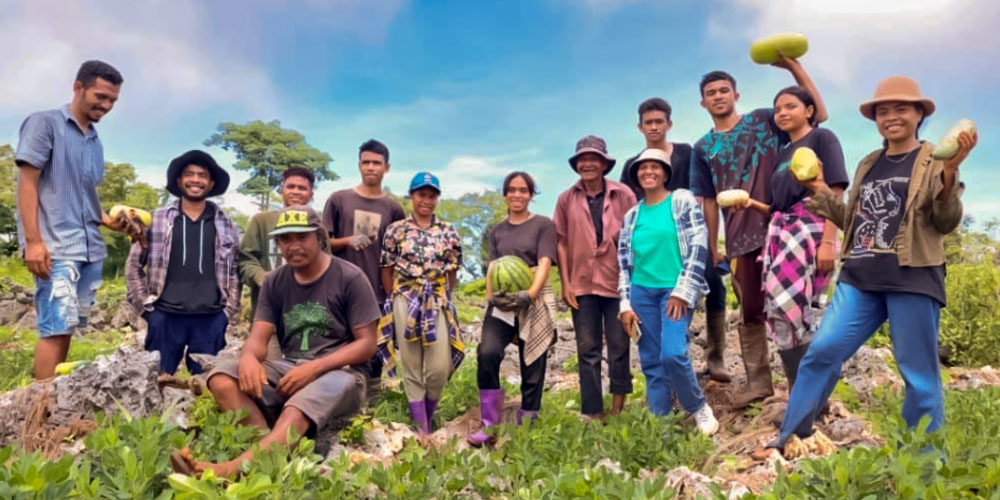The third year students of the Don Bosco Agricultural School are in their job training period.
This program is an annual activity contemplated in the school’s curriculum under the patronage of the Ministry of Education and the Ministry of Agriculture's supervision. For this year, the students are executing their program in the municipalities of Dili, Baucau, and Lautem.
The program covers areas of Agriculture, Veterinary Science, and Fisheries. In partnership with international, national, and local agencies, the school has sent the students to these different agencies to determine their capacity in implementing what they have studied in the school in two years. Although they have not studied everything, this is the moment of hands-on practice with matters they have studied; it shall also be a time of enrichment.
In the practice of agriculture, the students are introduced to a combination of traditional and modern agriculture where they emphasize production, capital gain, input intensity, and crop consistency. From single and small production, with the advance of technology in agriculture, the students are being introduced to mass production with machines.
 Students till the ground to prepare for the planting of crops
Students till the ground to prepare for the planting of crops
With the current problem of climate-related emergencies and global warming that has affected climate change, the students are also introduced to producing more efficient, safer, and more environmentally-friendly techniques. In some parts of Timor-Leste, there is barren soil (not fertile), hence, with the advance of technology, with every discovery, the students are practicing to improve the soil’s fertility. This practice is called agro-ecology.
In the veterinary field, the students are introduced to veterinary science, a medical specialty concerned with the prevention, control, diagnosis, and treatment of diseases affecting the health of animals and the prevention of transmission of animal diseases to people. The veterinarian also plays a critical role in environmental protection, research, food safety, and public health. Their work is complex but with proper in-depth studies and good practice, they are sure to learn the best practices during this internship program so as to benefit people and eventually contribute to the development of veterinary science in Timor-Leste.
In the area of fisheries, the students are introduced to raising and harvesting fish and other aquatic life. In this area, the students are practicing by combining traditional and modern ways of fish farming.
During this internship program, the students are also introduced to marketing and commercial ideas. From this program, they learn to bring the result from their farm, pen, and fish pond to sell to the public. This aims to prepare them for the labor market that has been so demanding in the past decade. Aside from preparing the students for university, it will also help, prepare and ready them in the area of entrepreneurship.
 With thanks to ANS for this story
With thanks to ANS for this story

